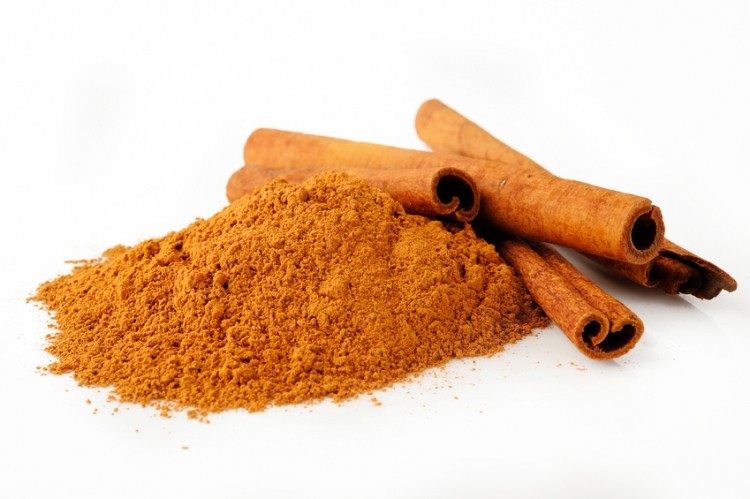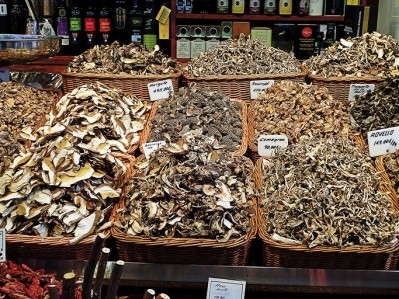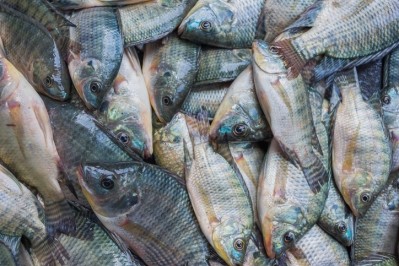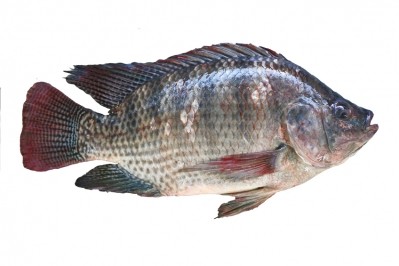Fish like it spicy: Cinnamon oil said to boost immune response in Nile tilapia

A team of researchers at the Federal University of Minas Gerais in Brazil explored the use of multiple levels of cinnamon powder and oil in the feed of stressed Nile tilapia to track immune responses.
The group published their results in the journal Fish & Shellfish Immunology.
“The aim of this study was to evaluate the possible effects of diets supplemented with probiotics and different levels of cinnamon (powder and essential oil) on the immunological parameters of Nile tilapia after being subjected to acute hypoxic stress,” said team members.
The authors found levels of cinnamon powder and cinnamon oil offered benefits or altered fish immune responses, but added that more research is needed to fully understand the interaction.
“Diet supplementation with 0.5% cinnamon powder improved the fish immune response, since it resulted in an increase of 0.5% in γ-globulin level,” said the researchers. “Administration of 0.15% cinnamon essential oil resulted in an increase of α1 and α2-globulins, which may be reflected in increased lipid content of the carcass and the hepatosomatic index.”
Why cinnamon?
Nile tilapia is known to be a freshwater species with consistent meat quality and the ability to grow in intensive farming systems.
However, in intensive production, stress is a constant concern and it can alter blood levels for cortisol, glucose and total protein, said the authors. “Hypoxia is an important stressor that can occur during fish farming, mainly in high-density storage when the aeration system is suspended, there is a lack of appropriate food, or during transportation,” they added.
Hypoxic stress can change a range of biochemical and physiological processes and limit a fish’s ability to respond to pathogens and disease, wrote the researchers.
“A promising method in disease control in fish farming is based on the enhancement of fish defense mechanisms through administration of immuno-stimulants,” they said. “Some plants and probiotic bacteria have immunomodulatory properties that can be efficient replacements for antibiotics in fish farming.”
These botanical options may include cinnamon (Cinnamomum sp.), they said. It is known to have antimicrobial properties from the cinnamaldehyde in the plant’s bark.
“The use of cinnamon could improve conditions during fish farming by enhancing the innate immune system of fish, allowing a better response to stressful environmental conditions, such as hypoxia,” said the scientists.
Study details
In the trials 330 juvenile, male tilapia were given one of 10 diets for a period of 71 days, reported the team.
Diets included one with no supplement, four with levels of extruded cinnamon powder at 0.5, 1, 1.5 and 2%, four with differing amounts of cinnamon essential oil at 0.05, 0.1, 0.15 and 0.2% and one with a probiotic at 0.4%, they said. Both cinnamon oil and powder were analyzed for chemical makeup.
At the end of the feeding trial, fish were stressed by hypoxia. Blood samples were taken 30 minutes post-stress and analyzed for amounts of cortisol, glucose, hematocrit, lysozyme, the bactericidal index and total protein. Fish were harvested for liver samples and used to establish hepatosomatic index (HSI), and select fish also were used to test for ether extract amounts.
Results
Overall fish kept blood homeostasis after the stress incident, said the researchers. No significant differences were found among the groups for glucose, hematocrit or lysozyme bactericidal index.
“The results of this study showed that juvenile tilapia fed a diet supplemented with cinnamon (powder or essential oil) kept blood homeostasis after three minutes of exposure to air without causing damage to the immune system of the fish,” they said. “Powdered cinnamon improved the immune response of fish, causing a 0.5% increase in the γ-globulin level.”
The fish getting the probiotic had lower cortisol levels compared to the groups getting the cinnamon powder, they said. But that level was similar to fish getting the control diet and the diet with cinnamon oil.
“The lowest average cortisol level was observed for the animals receiving probiotics and cinnamon essential oil,” said the researchers. “Possibly, these additives were capable of restraining the elevated cortisol levels triggered by the acute stress caused by hypoxia, and these additives were more efficient than cinnamon powder.”
Levels of cinnamon oil did alter the total protein, they said. Fish with the highest protein received the diet with 0.15% cinnamon oil.
“Animals fed with cinnamon oil showed differences between levels [for HSI and ether extract], and the largest amount of ether extract was found in the 0.15% level; however, the levels did not differ between the control group and the 0.05 and 0.10% levels,” noted the researchers. “Animals receiving oil had a significantly higher HSI compared to the control group.”
Levels of cinnamon oil also had different HSI results than the control group when 0.05, 0.1 and 0.15% of oil was added to the diet, they said.
Results were similar for fish getting either type of cinnamon for pre-albumin, albumin and B-globulin. “The cinnamon essential oil levels influenced the absolute values of the α1 and α2 globulin fractions of tilapia, and were highest for animals supplemented with 0.15% oil in the diet,” reported the team.
“Samples of the essential oil and cinnamon powder were subjected to chemical characterization to determine the percentage of major constituents present in the samples,” added the researchers. “The analysis primarily identified cinnamaldehyde as the predominant active component, with concentrations of 59.6% and 86.2% for cinnamon powder and essential oil, respectively.”
Source: Fish & Shellfish Immunology
Title: Cinnamon (Cinnamomum sp.) inclusion in diets for Nile tilapia submitted to acute hypoxic stress
DOI: 10.1016/j.fsi.2016.04.135
Authors: W. dos Santos, T. de Brito, S. de Prado, C. de Oliveira, A. De Paula, D. de Melo, P. Ribeiro















